- Home
- H A CULLEY
BRETWALDA
BRETWALDA Read online
BRETWALDA
By
H A Culley
Book three about the lives and times of Oswald and Oswiu, brothers who were Kings of Northumbria, warriors and saints
Published by Orchard House Publishing
First Kindle Edition 2017
Text copyright © 2017 H A Culley
The author asserts the moral right under the Copyright, Designs and Patents Act 1988 to be identified as the author of this work.
All Rights Reserved. This book may not be reproduced in any form, in whole or in part, without written permission from the author.
Cover Image: © Copora | Dreamstime.com
Table of Contents
List of Principal Characters
Place Names
Glossary
SYNOPSIS OF THE FIRST TWO BOOKS – WHITEBLADE and WARRIORS OF THE NORTH
CHAPTER ONE – DIVISION OF THE KINGDOM
CHAPTER TWO – DEEP INTO ENEMY TERRITORY
CHAPTER THREE – SAINTLY REMAINS
CHAPTER FOUR – LOVE AND WAR
CHAPTER FIVE – THE FALL OF WESSEX
CHAPTER SIX – RETURN TO ARDEWR
CHAPTER SEVEN – THE LAND OF THE PICTS
CHAPTER EIGHT – OVERLORD OF THE NORTH
CHAPTER NINE – WAR CLOUDS GATHER
CHAPTER TEN – TWO INVASIONS
CHAPTER ELEVEN – REGICIDE
CHAPTER TWELVE – WAR AND PEACE
CHAPTER THIRTEEN – PRELUDE TO CONFLICT
CHAPTER FOURTEEN – THE BATTLE OF THE WINWAED
CHAPTER FIFTEEN – AFTERMATH
Author’s Note
Other Novels by H A Culley
About the Author
List of Principal Characters
(In alphabetical order)
Historical characters are shown in bold type
Acha – Widow of Æthelfrith and sister of Edwin, both kings of Northumbria
Æbbe - Acha’s only daughter. Abbess and founder of Coldingham Priory
Ælfflaed – Oswiu’s second daughter by Eanflæd. Later Abbess of Whitby
Æthelred – Youngest of Penda’s three sons.
Aidan – First Bishop of Lindisfarne. He is credited with converting Northumbria to Christianity
Alchflaed – Oswiu’s daughter by Rhieinmelth. Married Peada of Mercia
Aldfrith – Oswui’s eldest son (illegitimate)
Alweo – Nephew of Penda of Mercia.
Arthius – Son of Rand, Eorl of Elmet
Cadafael – King of Gwynedd in North Wales
Catinus – Briton born in Mercia who becomes one of Oswiu’s warriors
Ceadda – Captain of Oswiu’s gesith, later his Hereræswa.
Cenwalh – Cynegils’ eldest son, King of Wessex from 342
Conomultus – Catinus’ younger brother, a monk and later chaplain to Oswiu
Cuthbert – Monk at Melrose, later a warrior before becoming Prior then Bishop of Lindisfarne
Domangart – King of Dalriada
Dudda – Eorl of Norhamshire and one of Oswiu’s counsellors
Dunstan – Oswiu’s horse marshal
Eanflæd – Oswiu’s second wife. Daughter of his uncle, Edwin of Northumbria
Eata – Novice at Lindisfarne, later Abbot of Melrose, then of Lindisfarne
Ecgfrith – Oswiu’s elder son by Eanflæd.
Elhfrith – Oswiu’s son by Rhieinmelth. Sub-king of Deira 655-664
Finan – Bishop of Lindisfarne after St. Aidan
Fergus – King of Ardewr and Ròidh’s younger brother
Genofeva – Former queen of Ardewr and the mother of Ròidh and Fergus
Guret - King of Strathclyde
Hild – Oswiu’s cousin. Abbess of Hartlepool, later of Whitby
James the Deacon – A Roman Catholic missionary in Deira; later canonised
Kenric – Eorl of Dùn Barra in Goddodin, fictional father of Cuthbert.
Œthelwald – Oswald’s son; later King of Deira
Offa – Oswiu’s youngest brother, his chaplain and later Abbot of Melrose
Osthryth – Oswiu’s elder daughter by Eanflæd. Later married King Æthelred of Mercia
Oswiu – King of Bernicia. Later King of Northumbria and Bretwalda of England
Penda – King of Mercia
Peada – Penda’s eldest son, Sub-king of Middle Anglia as his father’s vassal.
Rhieinmelth – Princess of Rheged and Oswiu’s first wife.
Ròidh – A Pictish prince who became Aidan’s acolyte, now a bishop
Talorc – High King of the Picts
Talorgan – Oswald’s and Oswiu’s half-brother. Later High King of the Picts
Wigmund – Alweo’s cousin. A monk, later Prior of Whitby
Wulfhere – Penda’s second son, later King of Mercia
Utta – Former warrior in Eaochaid’s gesith, later chaplain to Oswiu and then Bishop of Prydenn.
Place Names
(In alphabetical order)
I find that always using the correct place name for the particular period in time may be authentic but it is annoying to have to continually search for the modern name if you want to know the whereabouts of the place in relation to other places in the story. However, using the ancient name adds to the authenticity of the tale. I have therefore compromised by using the modern name for places, geographical features and islands, except where the ancient name is relatively well known, at least to those interested in the period, or else is relatively similar to the modern name. The ancient names used are listed below:
Austrasia – A part of Frankia (see below) centred on the Meuse, Middle Rhine and the Moselle rivers, with a coastline opposite that of southern Kent.
Bebbanburg – Bamburgh, Northumberland, North East England.
Bernicia – The modern counties of Northumberland, Durham, Tyne & Wear and Cleveland in the North East of England. At times Goddodin was a subsidiary part of Bernicia.
Berwic – Berwick upon Tweed
Cair Lerion – Leicester in the Midlands of England
Caer Luel – Carlisle, Cumbria, England
Caledonia - Scotland
Cantwareburg – Canterbury, Kent, England
Dalriada – Much of Argyll and the Inner Hebrides
Deira – Most of North Yorkshire and northern Humberside
Dùn Add – Dunadd, near Kilmartin, Argyll, Scotland. Capital of Dal Riata.
Dùn Barra - Dunbar, Scotland
Dùn Breatainn - Literally Fortress of the Britons. Dumbarton, Scotland
Dùn Dè – Dundee, Tayside, Scotland
Dùn Èideann - Edinburgh
Dùn Phris - Dumfries, south-west Scotland
Eoforwīc - York
Elmet – West Yorkshire
Frankia – The territories inhabited and ruled by the Franks, a confederation of West Germanic tribes, approximating to present day France and a large part of Germany.
German Ocean – North Sea
Gleawecastre – Gloucester, England
Goddodin – The area between the River Tweed and the Firth of Forth; i.e. the modern regions of Lothian and Borders in Scotland.
Gwynedd – North Wales including Anglesey
Hammaburg – Hamburg, Germany
Hamwic – Southampton, Hampshire, England
Isurium Brigantum - Aldborough in Yorkshire
Ledes – Leeds, West Yorkshire
Legacæstir – Chester, England
Lundenwic – London
Mamucium – Roman name for Manchester
Maserfield – Oswestry in Shropshire, England
Mercia – Roughly the present day Midlands of England
Neustria - The region of Frankia between Aquitaine and the English Channel, i.e. the north of present-day France
Nort
humbria – Comprised Bernicia, Elmet and Deira. At times it also included Rheged and Goddodin
Orcades – The Orkney Islands, Scotland
Oxenforda – Oxford, England
Pictland – The confederation of kingdoms including Shetland, the Orkneys, the Outer Hebrides, Skye and the Scottish Highlands north of a line running roughly from Skye to the Firth of Forth
River Twaid – The river Tweed, which flows west from Berwick through northern Northumberland and the Scottish Borders.
Rheged - A kingdom of Ancient Britons speaking Cumbric, a Brythonic language similar to Old Welsh, which roughly encompassed modern Lancashire, Cumbria in England and, at times, part of Galloway in Scotland
Strathclyde – South east Scotland
Wintan-ceastre - Winchester, Hampshire, England
Weorgoran-ceastre – Worcester, England
Ynys Môn – The Isle of Anglesey, North Wales
Yr Wyddfa – Mount Snowdon, North Wales
Glossary
Ætheling – Literally ‘throne-worthy. An Anglo-Saxon prince.
Birlinn – A wooden ship similar to the later Scottish galleys. Usually with a single mast and square rigged sail, they could also be propelled by oars with one man to each oar.
Brenin – The Brythonic term by which kings were addressed in Wales, Strathclyde and the Land of the Picts.
Bretwalda - In Anglo-Saxon England, an overlord or paramount king accepted by other kings as their leader
Ceorl - Freemen who worked the land or else provided a service or trade such as metal working, carpentry, weaving etc. They ranked between thegns and slaves and provided the fyrd in time of war
Currach - A boat, sometimes quite large, with a wooden frame over which animal skins or hides are stretched and greased to make them waterproof.
Custos – A guardian or custodian, the word was used in a variety of contexts including to mean one left in charge in the absence of the lord or king.
Cymru - Wales
Cyning – Old English for king and the term by which they were normally addressed.
Eorl – A noble ranking between thegn and members of the royal house. In the seventh century it meant the governor of a division of the kingdom. Later replaced by ealdorman, the chief magistrate and war leader of a county, and earl, the ruler of a province under the King of All England; for example, Wessex, Mercia and Northumbria.
Fyrd – A militia that was raised from freemen to defend their shire, or to join a royal expedition in times of exceptional need. Service in the fyrd was usually of short duration and members were expected to provide their own arms and provisions
Gesith – The companions of a king, usually acting as his bodyguard.
Hereræswa – Military commander or general. The man who commanded the army of a nation under the king.
Seax – A bladed weapon somewhere in size between a dagger and a sword. Mainly used for close-quarter fighting where a sword would be too long and unwieldy.
Thegn – The lowest rank of noble. A man who held a certain amount of land direct from the king or from a senior nobleman, ranking between an ordinary freeman and an eorl.
Ulaidh - A confederation of dynastic-groupings that inhabited a provincial kingdom in Ulster (north-eastern Ireland) and was ruled by the Rí Ulad or King of the Ulaidh. The two main tribes of the Ulaidh were the Dál nAraidi and the Dál Fiatach.
Uí Néill – An Irish clan who claimed descent from Niall Noigiallach (Niall of the Nine Hostages), a historical King of Tara who died about 405 AD.
Settlement – Any grouping of residential buildings, usually around the king’s or lord’s hall. In 7th century England the term city, town or village had not yet come into use.
Síþwíf - My lady in Old English.
Weregeld – In Anglo-Saxon England, if property was stolen, or someone was injured or killed, the guilty person would have to pay weregeld as restitution to the victim's family or to the owner of the property.
Witan – The council of an Anglo-Saxon kingdom. Its composition varied, depending on the matters to be debated. Usually it consisted of the Eorls and the chief priests (bishops and abbots in the case of a Christian kingdom), but for the selection of a king or other important matters, it would be expanded to include the more minor nobility, such as the thegns.
Villein - A peasant (tenant farmer) who was legally tied to his vill.
Vill - A thegn’s holding or similar area of land in Anglo-Saxon England which might otherwise be described as a parish or manor.
SYNOPSIS OF THE FIRST TWO BOOKS – WHITEBLADE and WARRIORS OF THE NORTH
Woken in the middle of the night to flee the fortress of Bebbanburg on the Northumbrian coast, the twelve year old Prince Oswald escapes his father’s killer, Edwin, to establish a new life for himself on the West Coast of Scotland. He becomes a staunch Christian on Iona and trains to be a warrior.
He makes a name for himself in the frequent wars in Ulster and in a divided Scotland, earning himself the nickname of ‘Whiteblade’ and establishing himself as the greatest war leader in his adopted homeland. However, he is beset by enemies on all sides and is betrayed by those he should be able to trust the most.
After playing a leading role in deposing the treacherous Connad, King of Dalriada, he helps his successor to extend Dalriada to include the Isles of Skye, Arran and Bute. When King Edwin is killed in battle and those who try to succeed him are also killed by Cadwallon and his invading Welsh army, Oswald decides that his moment of destiny has arrived; he sets out with his warriors to confront Cadwallon and win back the throne of Northumbria.
Once secure on his throne, he enlists the aid of his friend Saint Aidan to convert his pagan subjects to Christianity and establishes the monastery on the Holy Island of Lindisfarne that will become the focus for the spread of the faith throughout the north of England.
Oswald’s brother, Oswiu, marries the heiress of Rheged and becomes its king. Gradually he overcomes the ancient enemies of Rheged and allies himself to them to become the dominant force in Caledonia (Scotland) as well as North West England.
Meanwhile Oswald uses a mixture of force, diplomacy and threat to become the most powerful ruler in the whole of England. However, his enemies lurk in the wings and he is betrayed by his allies and killed in battle by the pagan King of Mercia. Oswui vows to continue the work Oswald started and to take Northumbria forward into its golden age.
CHAPTER ONE – DIVISION OF THE KINGDOM
642 AD
Oswiu and his gesith rode as if the devil was behind them as they headed for the King of Bernicia’s summer residence at Yeavering in the Cheviot Hills. His body slave, a boy called Nerian, struggled to keep up with them, burdened as he was by riding an inferior horse and leading a packhorse. The boys who served the twenty warriors who made up Oswiu’s gesith lagged even further behind, but that wasn’t Nerian’s problem.
It was one hundred and seventy miles from Maserfield, where Oswald, King of Northumbria had been killed, to Yeavering; a journey that would normally have taken the best part of a week, even on horseback, but Oswiu, Oswald’s brother, was determined to cover it in three days. His plan was to convene the Witan as quickly as possible to elect him as king in place of Oswald and then head for Eoforwīc, the capital of Deira, and convene the Witan there.
Although Northumbria was theoretically one kingdom now, it had a nasty habit of splitting into two parts: Bernicia with its client kingdoms of Rheged to the west and Goddodin between the River Twaid and Forth of Forth, and Deira with its satellites of Elmet to the west of it and Lindsey between the River Humber and the Kingdom of East Anglia. Oswald had failed to get support for the combination of the two Witans and so, like Oswald before him, Oswiu would have to get the agreement of both to his enthronement.
It was not going to be a simple matter. In Anglo-Saxon England sons did not automatically follow fathers to the vacant throne. The Witan, composed of the eorls, thegns, abbots and bishops of the kingdom, chose from amongst the eli
gible members of the royal house, called æthelings.
There were a number of contenders including Oswald’s nineteen year old son, Œthelwald, who was in Kent the last Oswiu had heard. But he had two fast ships with him and it was only a few days by sea up the east coast. The other main contender for Deira was Oswine, son of the last King of Deira before Oswald.
Apart from Oswiu’s tent, armour, weapons and other equipment, the poor packhorse was carrying Oswald’s remains – the limbless and headless torso that Oswiu had removed from the crude crucifix where Penda of Mercia had nailed it - sewn into a leather tent.
Penda was a pagan and no doubt he saw some humour in abusing his enemy’s corpse in this way. No-one knew where Oswald’s head and limbs were, but Oswiu had vowed to recover them. His brother was already being referred to as Saint Oswald the Martyr and no doubt his remains would be highly prized amongst the faithful. The recovery of all his various body parts was likely to be something of an impossible quest.
Before Maserfield Oswiu had intercepted King Peada of Middle Anglia, Penda’s son, and had soundly defeated him. Now here he was on a mad dash all the way across England to secure his brother’s crown.
‘Take my brother’s remains to the church and lay it in front of the altar for now,’ Oswiu told Nerian once they’d reached Yeavering.
‘Yes, Cyning. Shall I see the carpenter about a coffin?’
‘I’m not king here yet, even though I am the ruler of Rheged, so addressing me as one won’t help my case if the members of the Witan hear you.’
‘I’m sorry, lord.’
‘Not that I don’t appreciate the sentiment. You’ve been a good servant over the years; when this is all over remind me to talk to you about your future. Yes, go and see the carpenter by all means. Oswald wouldn’t have wanted anything elaborate. A plain wooden box will suffice.’

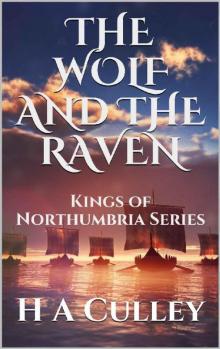 The Wolf and the Raven
The Wolf and the Raven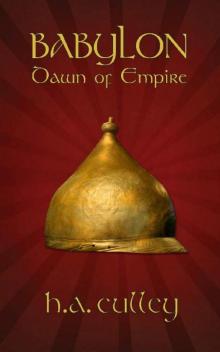 Dawn of Empire
Dawn of Empire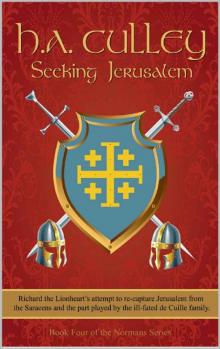 Seeking Jerusalem
Seeking Jerusalem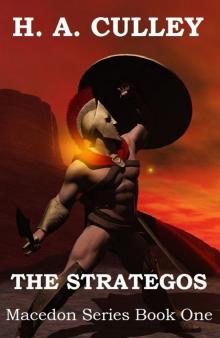 The Strategos
The Strategos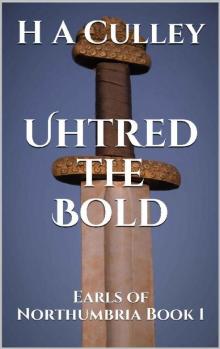 Uhtred the Bold
Uhtred the Bold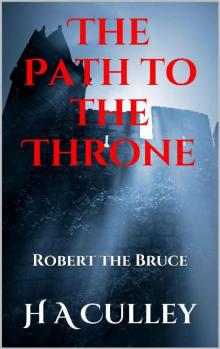 The Path to the Throne
The Path to the Throne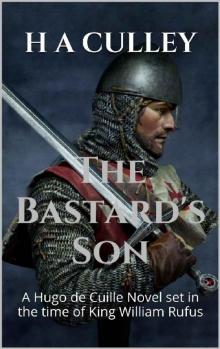 The Bastard's Son
The Bastard's Son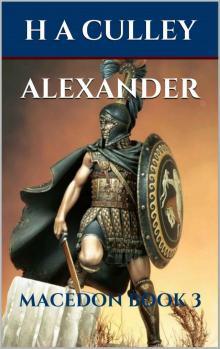 Alexander
Alexander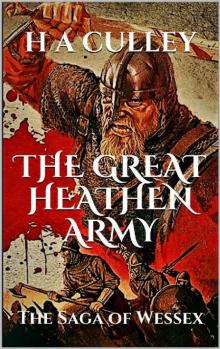 The Great Heathen Army
The Great Heathen Army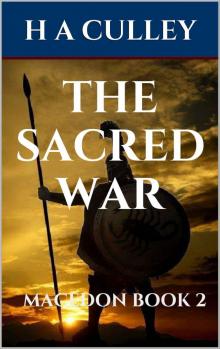 The Sacred War
The Sacred War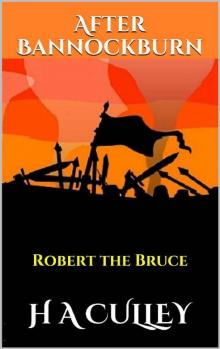 After Bannockburn
After Bannockburn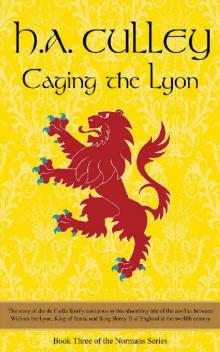 Caging the Lyon
Caging the Lyon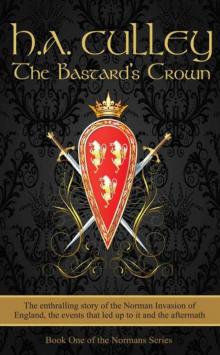 The Bastard's Crown
The Bastard's Crown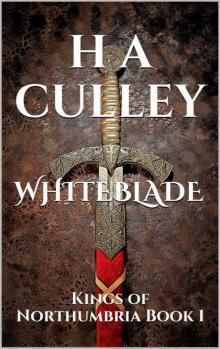 WHITEBLADE
WHITEBLADE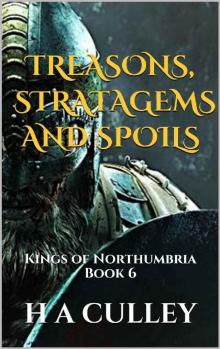 TREASONS, STRATAGEMS AND SPOILS: Kings of Northumbria Book 6
TREASONS, STRATAGEMS AND SPOILS: Kings of Northumbria Book 6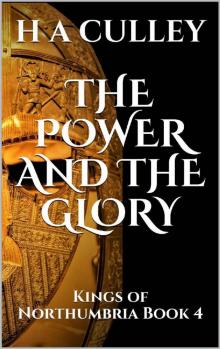 THE POWER AND THE GLORY: Kings of Northumbria Book 4
THE POWER AND THE GLORY: Kings of Northumbria Book 4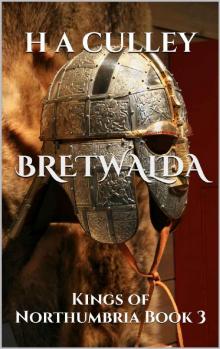 BRETWALDA: Kings of Northumbria Book 3
BRETWALDA: Kings of Northumbria Book 3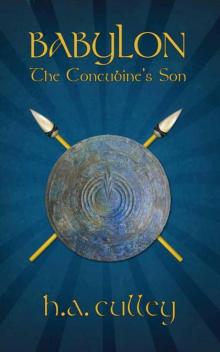 The Concubine's Son
The Concubine's Son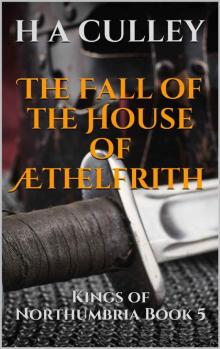 The Fall of the House of Æthelfrith: Kings of Northumbria Book 5
The Fall of the House of Æthelfrith: Kings of Northumbria Book 5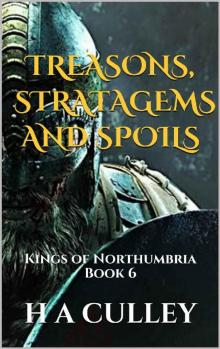 TREASONS, STRATAGEMS AND SPOILS
TREASONS, STRATAGEMS AND SPOILS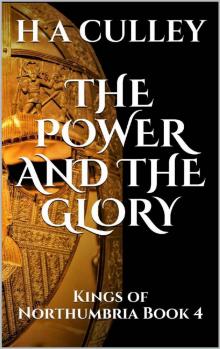 THE POWER AND THE GLORY
THE POWER AND THE GLORY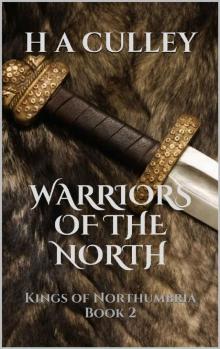 WARRIORS OF THE NORTH
WARRIORS OF THE NORTH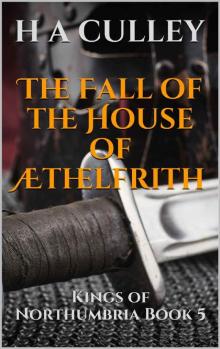 The Fall of the House of Æthelfrith
The Fall of the House of Æthelfrith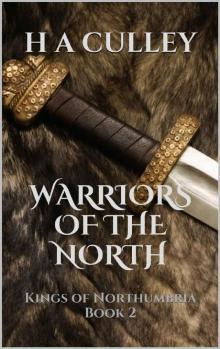 WARRIORS OF THE NORTH: Kings of Northumbria Book 2
WARRIORS OF THE NORTH: Kings of Northumbria Book 2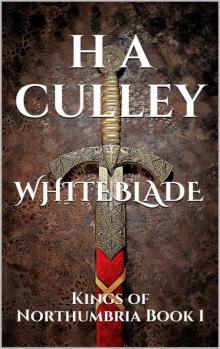 WHITEBLADE: Kings of Northumbria Book 1
WHITEBLADE: Kings of Northumbria Book 1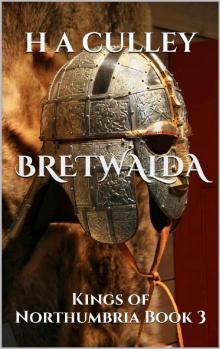 BRETWALDA
BRETWALDA